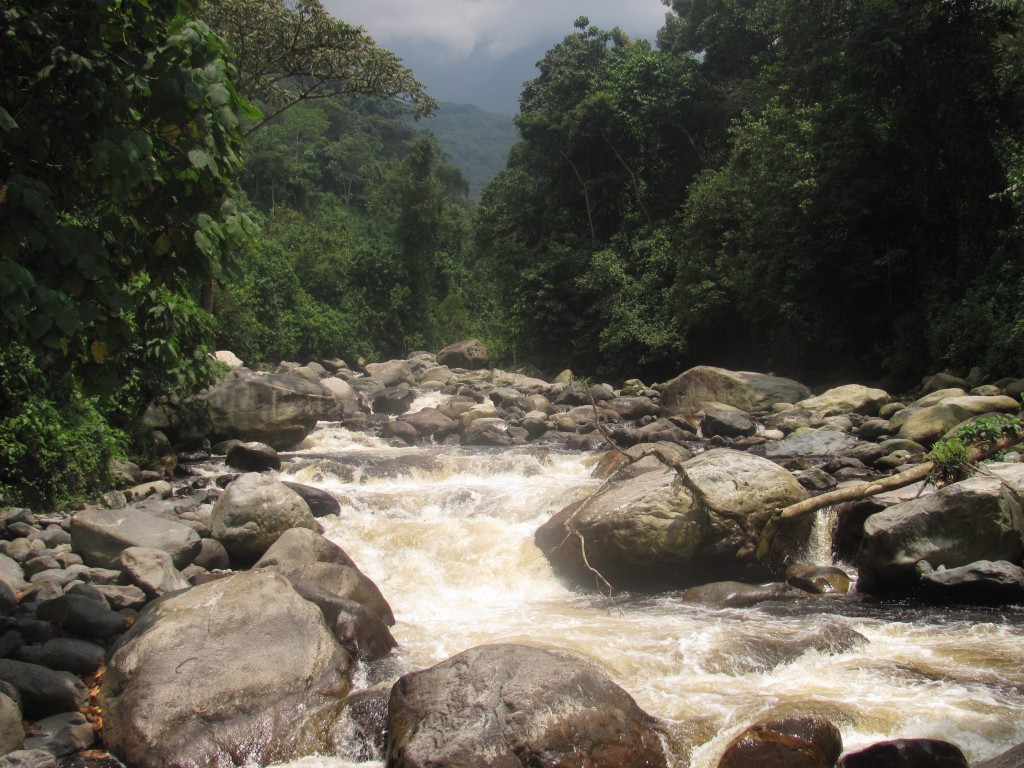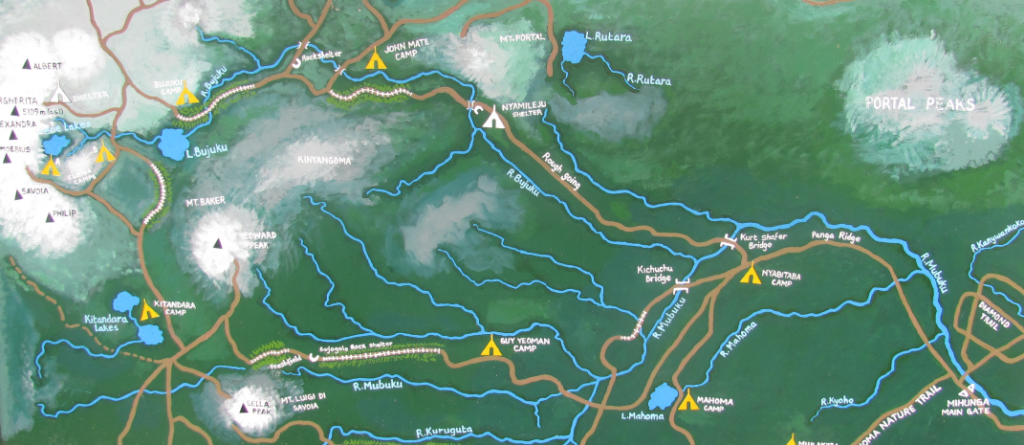This project pilots a Payment for Watershed Services (PWS) scheme in the Rwenzori Mountains National Park (RMNP) in Uganda. The goal of the pilot is to study the feasibility of the PWS scheme in the watersheds of the Mubuku and Nyamwamba rivers and supporting nature conservation and a healthy watershed that improves the livelihoods of landowners and provides a sustainable supply of the critical quantity and quality of water to downstream water users, to local communities as well as to industrial users, including the hydropower and mining sector.
 The Rwenzori Mountains National Park (RMNP) is a key natural resource, safeguarding drinking water for around 2 million people, and supplying water for a variety of industrial users including several hydropower and mining companies. These are key economic growth engines and major employers in the region and beyond.
The Rwenzori Mountains National Park (RMNP) is a key natural resource, safeguarding drinking water for around 2 million people, and supplying water for a variety of industrial users including several hydropower and mining companies. These are key economic growth engines and major employers in the region and beyond.
The watershed services of the RMNP are currently undervalued and under increasing threat from climate change and increasing intensity of land use. Current land use practices, dominated by small holder farmers, are leading to loss of soil and reduce water quality and water quantity. The erosion and variable water flows puts at risk the reliability of the downstream services (hydropower and mining) and water supply.
World Wide Fund for Nature (WWF) has in the recent years recognized the strong links between conservation and sustainable use of biological diversity, and the eradication of extreme poverty. Currently WWF Uganda is implementing “Sustainable Financing of the Rwenzori Mountains National Park (SFRMNP) Project” with funding from the European Union (EU) and the French Funds for Global Environment (FFEM).
This project pilots a Payment for Watershed Services (PWS) scheme that should engage large, downstream users (corporations and utilities) that willingly contribute to a water conservation scheme as a way of shoring up their business investments. The goal of the pilot is to study the feasibility of the PWS scheme in the watersheds of the Mubuku and Nyamwamba rivers and supporting nature conservation and a healthy watershed that improves the livelihoods of landowners and provides a sustainable supply of the critical quantity and quality of water to downstream water users, to local communities as well as to industrial users, including the hydropower and mining sector.
To understand the value of the resources and what interventions are required to protect these resources, a study is required to map the resources, stakeholders, and drivers to behaviour change and management change in the study area.

Related publications
2016 - FutureWater Report 149
Preliminary Hydrological and Agronomic Study for a Payment for Watershed Services Scheme in Rwenzori Mountains National Park, Uganda
Hunink, J.E., A. Kasangaki, H. Edison, P. Droogers

